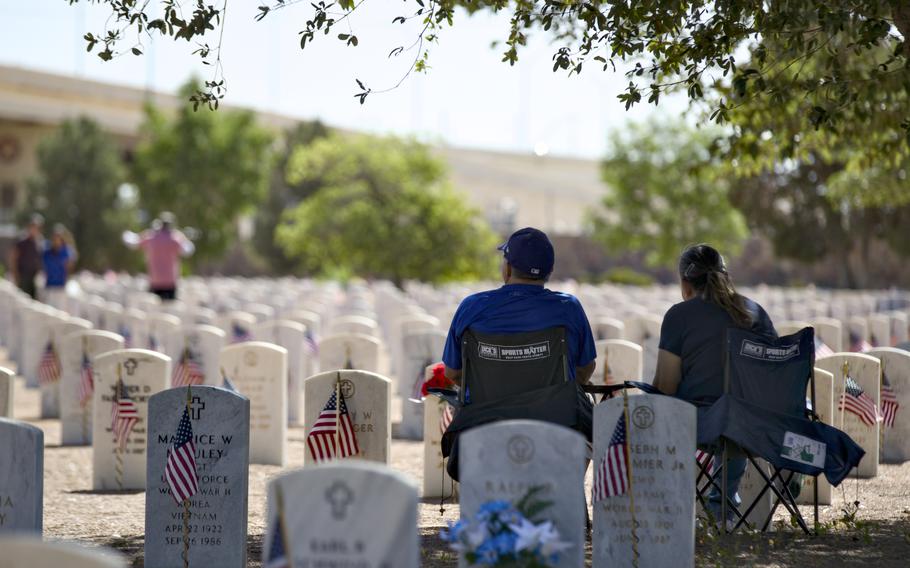
Guests visit the Fort Bliss National Cemetery in El Paso, Texas, on Memorial Day, May 26, 2025. (Fort Bliss Public Affairs)
WASHINGTON — Families who choose to receive an urn or commemorative plaque on behalf of a deceased veteran forfeit the right to bury that veteran in a national cemetery under a new Department of Veterans Affairs rule.
That trade-off came under fire from some veterans advocates when it was introduced last year and is now the subject of a bill that aims to ensure veterans can still be buried as long as it is with their spouses or dependents.
The Loved Ones Internment Act would clarify the existing law to allow veterans who were commemorated with an urn or plaque to be interred in the same burial space as their spouse or child in a national or veterans cemetery.
The legislation would also require the VA to provide a family headstone that contains details about the cremated veteran — a benefit that is unavailable to families that apply for an urn or plaque.
Rep. Julia Brownley, D-Calif., said she is again introducing a bill to offer such benefits because the VA’s current interpretation of the law imposes limitations on burial benefits that are “heartbreaking and completely unacceptable.”
“Those who have served our country in uniform deserve to be buried with the utmost respect and dignity, regardless of whether their families choose for them to be cremated or not,” she said in a statement.
Brownley first introduced her bill last year, shortly after the VA started issuing urns and plaques with the stipulation that once a family member applies for them, the VA will not inter the deceased veteran in a national cemetery or provide any kind of headstone, medallion or marker for the veteran in any cemetery.
The policy received pushback at the time from the National Funeral Directors Association, the Minnesota Department of Veterans Affairs and other groups who worried it could separate deceased veterans from spouses or children who are eligible for burial in VA national cemeteries.
The association suggested the VA amend its policy to allow a veteran’s cremated remains to be placed in the same VA cemetery plot as a spouse who is buried at a later date. The plot must be opened for the spouse no matter what, the association argued, and including the urn in it would not cost the VA extra money.
It would be “no different than including a memento in the casket,” the association’s senior vice president for advocacy wrote in a letter to then-VA secretary Dennis McDonough.
The VA has said it has no choice in the matter, pointing to a law that Congress passed in 2020 authorizing the VA secretary to furnish urns and plaques to deceased veterans under the condition that other burial benefits are not provided.
Brownley said her bill seeks to correct an “inadvertent consequence of the law” that denies such veterans the secondary benefit of being interred with a spouse or dependent.
“Ensuring that veterans are laid to rest with their loved ones is essential for upholding our promise to serve our veterans – in life and death,” she said.